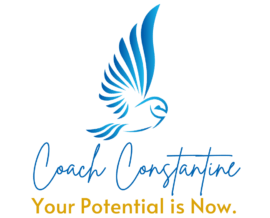What is and what isn’t forgiveness
How to let go of anger is phrase people often look up on Google. It’s also one of the main reasons people want to forgive others and one of the most common reasons they seek the help of a forgiveness coach. Yet there are a lot of misconceptions surrounding the concept of forgiveness. People often think that forgiveness means making the other person right. This is definitely not the case.
Forgiveness is frequently defined as releasing feelings of anger and/or resentment. In this respect, forgiveness is an essential part of life. It helps us maintain healthy relationships and move past hurtful experiences. It also allows us to express compassion and understanding, ultimately leading to a better mental state of being. When we forgive, we free ourselves from the burden of resentment and anger, which further allows us to grow and develop better relationships with others. Ultimately, forgiveness creates peace of mind and helps us live in harmony with others.
Why is it difficult to let go of anger and forgive?
When we question ourselves whether to forgive someone or not, we often battle with our own ego. Because it requires letting go of our right to exact revenge or hold grudges, forgiveness is frequently challenging. For example, it can be hard to forgive when we feel we deserve compensation for ourselves or the other person deserves to be published.
Not to mention how hard it can be to forgive when we feel that the action taken was unjustified or too serious to simply ignore or let go. In addition, forgiveness requires us to be vulnerable, as we let go of control over an experience or situation and allow ourselves to heal instead. Unfortunately, not everyone is willing to show this vulnerability or reveal their softer, more emotional side.
Finally, many people think that forgiveness means lowering your standards so that you can accept the actions of others. This is a widespread misconception among many of my clients. However, the opposite is true: forgiveness has to do with raising your standards: it takes a lot of courage, willpower, and determination to forgive someone who has done us wrong. If you can do that and think it isn’t you raising your standards, I don’t know what is!
How to Let Go of Anger and Seek Forgiveness
So, how to let go of anger? I would really advise people who find it challenging to forgive to seek the help of an expert who will provide extra guidance and support and it is true that often the help of a therapist is needed. Still, some of the most common steps you could consider taking are the following.
1. Acknowledge your anger: Identify the emotion you’re experiencing and try to figure out where it’s coming from. Then, find the source and accept that you are feeling angry.
2. Reframe your thoughts: We all have stories we tell ourselves about the situation. Reframe your thoughts to be more compassionate and kinder to yourself and the other person. Sometimes it helps to put yourself in the other person’s shoes (see step 4).
3. Let go of the need for revenge: It will only make things worse. Not only is it dangerous, but depending on the situation, it can cross many boundaries: ethics, law, and change people’s lives for the worse. Instead, remind yourself that by forgiving, you are becoming the better person.
4. Find empathy: Try to put yourself in the other person’s shoes and find compassion. What were the motives of the other person? How could their upbringing or current situation have affected their actions?
5. Express forgiveness: After acknowledging and accepting your anger, let it go. Then, speak or write a statement expressing your forgiveness.

Realize the Benefits of Forgiveness in Life
Forgiveness can be difficult, but the rewards are well worth the effort. When we forgive, we open the door to new possibilities and experiences. We can let go of our anger and pain and move forward in life with more peace and understanding. We can also free ourselves from the toxicity of grudges and resentment, allowing us to heal and create healthier relationships. Ultimately, forgiveness is empowering, as it will enable us to take control of our lives and find growth after difficult experiences. Only when we realize that our future is in our hands and not the hands of those who hurt us or were unjust to us, can we elevate ourselves as human beings.
But it’s not all just about ourselves. Forgiveness creates healthy relationships. It allows us to move past disagreements and create understanding. Not to mention trust: when we are willing to forgive others for their mistakes, we show we value their input and respect them. This ultimately strengthens the relationship and creates a more meaningful connection.
So, in the end, the act of forgiving will benefit not just you as a person but also your relationships and, in turn, society as a whole. But let’s assume that it just benefits you and no one else. Let’s say that you get to experienc
The the ultimate gift of forgiveness: emotional freedom. Is this not enough to make you seriously consider it? Or, in other words: How important is the emotional freedom that you may never experience in your life only because you refuse to forgive someone?
How a forgiveness coach can help
A forgiveness coach can help in different ways, and it is important to note that each coach may employ different modalities and approaches. For example, one coach may use CBT to return you to the initial incident and work their way forward from there. Or, using NLP and the timeline technique, try to reinstate the negative emotions you feel. Other coaches may avoid bringing up this memory entirely and instead focus on letting go and the benefits of doing so, making you aware of the pain you are alleviating.
In most cases, a forgiveness coach can help by facilitating your understanding of the importance of letting go, regardless of the technique. Even if you don’t feel ready to take action or are skeptical of coaching, confiding in someone you can trust is an important first step. And this alone may be enough for some people.

